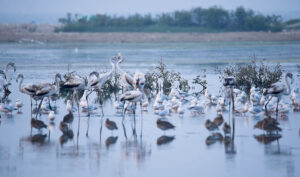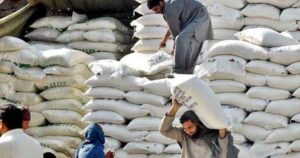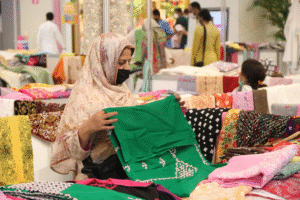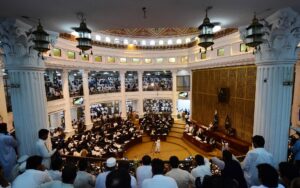Peshawar, a city already facing terrorism and urban challenges, now faces an ecological disaster in the form of its failed date palm plantation in Peshawar. Thousands of palm trees, imported at a high cost, were planted across the city in an ambitious beautification project.
However, these trees, better suited to coastal climates like those of Gulf countries, have failed to adapt to Peshawar’s arid conditions. The result? Billions of rupees lost, environmental degradation, and widespread public criticism.
An Ambitious But Misguided Project
The Peshawar Development Authority (PDA) launched the date palm plantation in Peshawar as part of a larger urban greening initiative. The imported trees, each costing between Rs8,000 and Rs12,000, were planted without considering the local environment’s unique needs. Soon after planting, many trees began to wither due to water scarcity and an inhospitable climate.
“This project ignored the environmental and ecological dynamics of the region,” said Dr. Adil Zareef, convener of the Sarhad Conservation Network and Peshawar Clean Air Alliance. He criticized the initiative as a borrowed idea inspired by Dubai, accusing planners of prioritizing personal interests and commissions over genuine urban development.
Financial and Environmental Fallout
The PDA’ s decision to implement the date palm plantation in Peshawar has been described by environmental experts as a financial and ecological catastrophe. The city, already suffering from reduced green cover and increasing concrete infrastructure, could have benefited more from planting native trees. These would have required less water and supported local biodiversity. “Date palms may be drought-resistant, but during their growth phase, they need substantial water—a resource that Peshawar lacks,” explained Dr. Saima Hashim, an associate professor at the University of Agriculture Peshawar. She emphasized that these trees offer minimal benefits for carbon sequestration and local wildlife. Unlike native trees, date palms fail to attract birds or insects, critical for maintaining biodiversity.
The project’s focus on aesthetics over sustainability highlights a glaring oversight. “We should have planted native species that require less water and contribute to the ecosystem,” Dr. Hashim stated, adding that such choices could have significantly improved the city’s urban landscape.
A City Under Environmental Stress
The date palm plantation in Peshawar reflects a broader issue: the city’s worsening environmental conditions. Deforestation in Khyber Pakhtunkhwa’s mountainous regions, such as Malakand and Dir, has severely impacted natural forest cover. The unchecked activities of the illegal timber mafia exacerbate this crisis. While the provincial government dismissed one minister for failing to address deforestation, no concrete action has been taken to halt the devastation. “Peshawar is fast turning into a concrete jungle,” warned Dr. Zareef, pointing to the PDA’s preference for imported ornamental trees over sustainable native greenery.
Mismanagement and Poor Timing
The PDA’s strategy to implement the date palm plantation in Peshawar has been criticized not only for poor planning but also for flawed execution. Dr. Hashim highlighted that the optimal planting period for date palms is between February and March. Planting outside this timeframe reduced the trees’ chances of survival. Moreover, many of these trees were sourced from Lahore and Dubai, adding to the project’s exorbitant costs. “Our dwindling water resources cannot support high-maintenance trees like date palms,” warned Dr. Hashim. “These trees were introduced purely for aesthetic purposes, with no consideration for their environmental impact.” PDA’s Response In defense of the project, PDA Director of Horticulture Manzoor Yousaf emphasized the beautification objective, citing similar projects in Lahore, Islamabad, and Karachi. However, this argument failed to address the unique challenges of Peshawar’s arid environment. The PDA’s justifications have done little to quell public concerns over the project’s ecological and financial consequences.
The date palm plantation in Peshawarserves as a cautionary tale of poor urban planning and mismanagement. While the city continues to face pressing environmental issues, billions of rupees have been wasted on a project that has yielded minimal benefits. As the once-hopeful palm trees wither and billions are squandered, residents are left questioning who will take responsibility for this failure. For now, the silence from the authorities stands in stark contrast to the rustling of Peshawar’s resilient but dwindling native trees.












